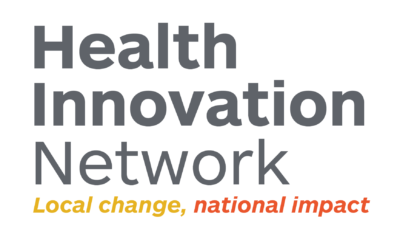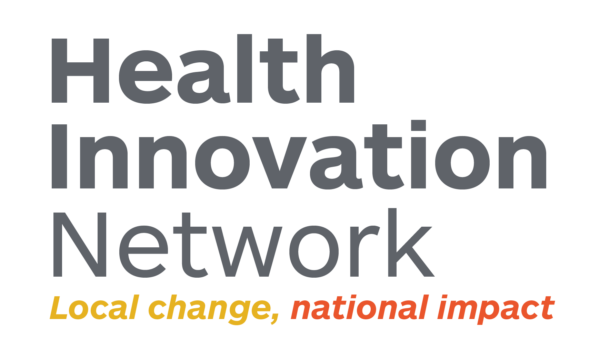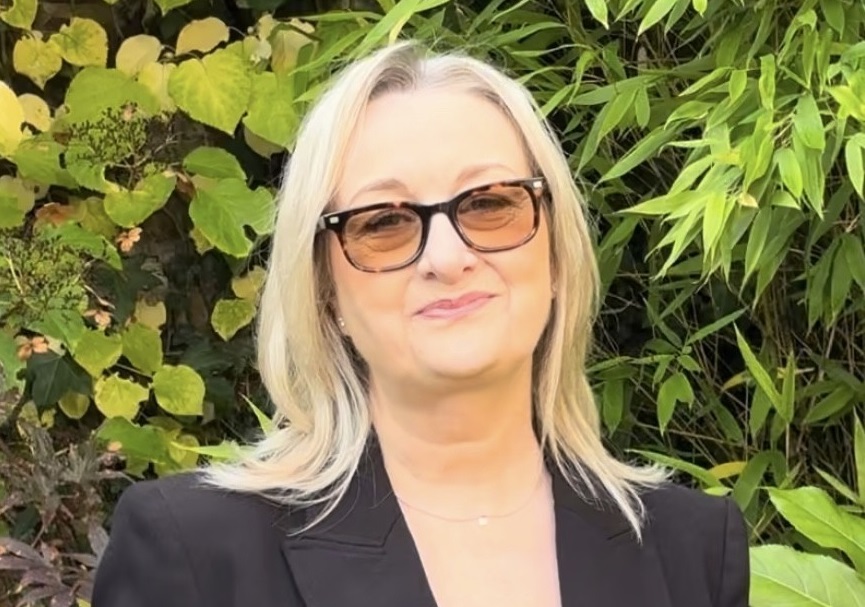Meet Felicia Vaz, UK Market Lead and Project Manager for FibriCheck, an app that tests your heart in 60 seconds to detect irregularities. Felicia describes how the pandemic shaped a new way for the innovation to be used and why integrated care is the future.
Tell us about your innovation – what and why?
It all started when FibriCheck Co-Founder and CEO Lars Grieten’s father suffered a stroke. The co-founders, then working in a mobile health unit within a Belgian academic teaching hospital, found themselves on a mission to develop something easy to use for the timely detection of cardiac arrhythmias, any time, anywhere, without having to buy expensive equipment. With that, FibriCheck went from idea to reality.
Atrial fibrillation (AF) is responsible for 20% and 75% of AF related strokes could be avoided with treatment. AF is often intermittent and symptomless in the early stages, making it difficult to capture during scheduled appointments. The FibriCheck app allows people to check their heart rate and rhythm on-demand with just their smartwatch or smartphone. In 60 seconds, you’re informed if what you’re experiencing is something to consult your provider about, saving many people from avoidable clinic visits and A&E admissions. Empowering people to self-manage at home not only provides peace of mind, but the results also support shared care discussions for the next steps in the pathway. Where FibriCheck is prescribed by care providers, results are automatically shared with the clinician, supporting evidence informed decision-making. Making health a part of everyday life and helping people to be more engaged in their care is less resource intensive on the healthcare system. At a time when people are still apprehensive about seeking care and wait lists continue to rise due to pandemic backlogs, enabling healthcare professionals to safely manage patients and remotely make better informed decisions about patient care benefits quality of life and saves the NHS money.
What was the ‘lightbulb’ moment?
Our primary focus in the early days was on AF detection and ensuring the right people went to the doctor. Pre-pandemic, FibriCheck monitored patients post-intervention to see if changes in dosages or procedures were successful in managing AF. Despite application in practice, the adoption of FibriCheck for remote cardiac monitoring and follow-up remained low, owing to the prevalence of face to face consultations.
With the onset of the pandemic, one of our clinical centres reached out to us to see if we could support them in seeing patients remotely. The approach took hold and what started out as a response to a need, quickly became a physician-led, pan-European response to care continuity during the pandemic.
The process was simple; seven days before a patient was due for virtual consultation, they were given instructions to download FibriCheck and a code to monitor their heart at home. This provided clinicians with the evidence needed to inform clinical decision ns during the consultation. In under two months, 40 centres across Europe were onboarded and TeleCheck-AF was born.
The approach proved the diversity in application across the care pathway and demonstrated the scalable power of a digital solution for patients and clinicians.
Which AHSNs are you supported by?
We’re engaged with Innovation Agency, the AHSN for the North West Coast, who are rolling out FibriCheck to seven sites across secondary care clinics and hospitals trusts in their patch.
Likewise, we’re working with Eastern AHSN to roll-out a completely virtual secondary care pathway in two Trusts.
We’ve also been supported by UCLPartners on a project where; FibriCheck was offered to Redbridge Primary Care Network patients along with their annual flu jab or coronavirus vaccination. Some of these patients are considered ‘hard to reach’ as they don’t typically engage with their GP, but by aligning with usual care pathways, GP practices are able to engage these at-risk patients without taking extra clinic time or resources. With booster shots and flu jab season approaching, and more digital pathways for long term conditions management being created, it’s never been easier to reach people who could benefit from an AF check, as well as streamlining care delivery for people with multiple conditions. UCLPartners’ evaluation support and guidance has resulted in publication of a case study for spread. Though rapid in its implementation, we hope the results of this real-world evidence helps support pathway transformation and care redesign.
Kent Surrey Sussex AHSN have provided guidance in helping us review our value proposition to better align our offer of support to various stakeholders across the care continuum.
As a non-UK company, we’ve benefitted immensely from the connections the NHS Innovation Accelerator (NIA) have facilitated with AHSNs, and the knowledge and expertise of the network via workshops and sessions.
I would say that the success of many of our adoptions can be credited to the open and shared dialogue to co-create the approach. In this regard, our AHSN collaborations have been truly rewarding and impactful, illustrating the power and potential for scale and spread of innovation when working jointly to deliver transformation.
What’s been your toughest obstacle to date?
When we first entered the UK, despite having a lot of evidence and value demonstrations, it was really a challenge to engage with the NHS because we didn’t have UK data, or a UK adoption to reference. Our acceptance into the NIA and DigitalHealth.London helped us to overcome these obstacles and supported us to have credible conversations with stakeholders. We’ve only been in the NHS since March 2020, however we are now adopted in over 30 centres and have well over 190,000 users in the UK alone.
What are your hopes for the future?
With the rise in uptake of digital solutions, I think the sector is starting to look at people/condition management more holistically. There is a lot of room to improve and harmonise care coordination and delivery, especially in cardiovascular care because of the links between conditions. I’m really excited about how we can better support integrated care delivery and foster more collaborations around digital care pathways, ultimately improving outcomes for those at-risk.
What’s a typical day?
I lead all our work in UK, from managing our projects to growing our partnerships. I love the relationships I have with our clinicians, organisation leads, industry partners, and AHSN contacts. It takes a team to deliver change in the NHS, and I am certainly surrounded by amazing people. Collaborating and working together to deliver various workstreams and initiatives gives my work a lot of meaning and diversity, which I love, as no two projects are the same. Needless to say, there’s never a dull moment.
What’s the best part of your job?
I get a lot of satisfaction from helping people. It’s also what drives us as a company. We get a lot of feedback from patients that our app helped save their life or that it helped give them reassurance and peace of mind, and that’s when you realise that the work that you’re doing is not only impactful, but life changing.
Three pieces of advice for budding innovators?
- Be open. Digital is so new that there isn’t a right or wrong way to do things. All you can do is test, learn and have an open mindset to flexibly adapt. Often when initiatives fail, it’s not because of the technology itself, it’s because the existing systems, structures, processes and routines weren’t taken into account. It’s important to have good communication channels with the people you’re working with to deliver the solution. Ultimately, it’s a people driven process, but their success is your success and vice versa. Once you find shared values and meanings around what you’re collectively trying to deliver, the rest becomes easy.
- Don’t be afraid to experiment. Being a female entrepreneur/innovator can be tough. Especially in the tech space, which is still largely male dominated. While it can be hard to know if you’re making the right move, sometimes you have to overcome your self-doubt and go with it. Own the space you’re in and engage others to support you. The NIA and DigitalHealth.London Accelerator programmes are great spaces for this – they allow you to ask the ‘stupid’ questions and figure things out with others in the same position.
- There’s a lot of pressure and risk in the beginning when you put your ‘baby’ out into the world, so finding role models is super important. Seeing other women in leadership navigate the space not only illustrates what’s possible but also gives you a reference to grow and learn from. I think one of the most valuable things you can do is seek out people doing what you are doing and learn from them. They can tell you what to avoid, giving you the confidence to do what you need to do and help you realise you’re not alone. We’re all better together.
[1] https://www.stroke.org.uk/what-is-stroke/are-you-at-risk-of-stroke/atrial-fibrillation

Jo Barosa is Account Director at Qbtech UK. Qbtech is a market leading provider of innovative objective tests for assessing and treating ADHD, changing the landscape of ADHD care. Driven by its mission to improve the lives of people with ADHD, Qbtech supports by providing digital and clinical solutions to improve clinical decision making, service [...]

Dr Cheryl Crocker, interim Chief Operating Officer at the Health Innovation Network, explains the vital role innovation plays to not only reduce waiting lists and improve access to care, but to decrease system pressure by improving people’s health and keeping them well for longer. The new Government has rightly declared its focus on moving the [...]

Launched in 2014, SiSU Health is scaling early warning, self-service health kiosks, digital platforms and pathways into pre-existing healthcare services. The British Heart Foundation estimates the annual cardiovascular disease (CVD) related costs to the UK healthcare system are around £10 billion, with annual costs to the UK economy of an estimated £25 billion. Making the [...]








